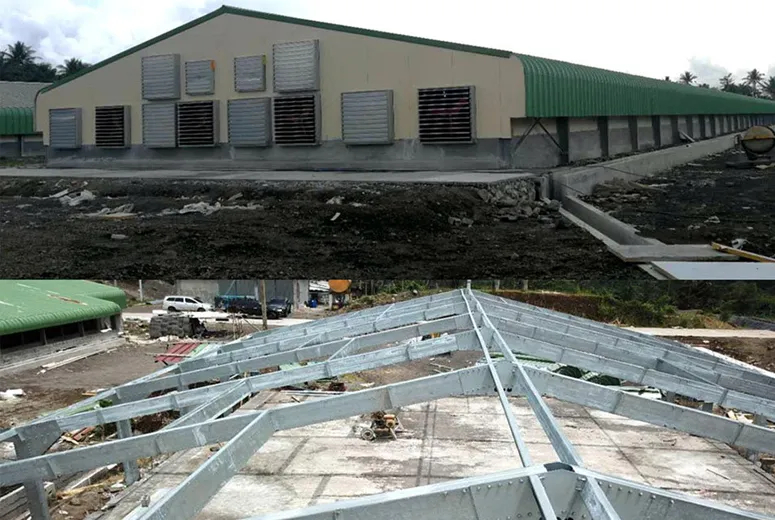- Afrikaans
- Albanian
- Amharic
- Arabic
- Armenian
- Azerbaijani
- Basque
- Belarusian
- Bengali
- Bosnian
- Bulgarian
- Catalan
- Cebuano
- Corsican
- Croatian
- Czech
- Danish
- Dutch
- English
- Esperanto
- Estonian
- Finnish
- French
- Frisian
- Galician
- Georgian
- German
- Greek
- Gujarati
- Haitian Creole
- hausa
- hawaiian
- Hebrew
- Hindi
- Miao
- Hungarian
- Icelandic
- igbo
- Indonesian
- irish
- Italian
- Japanese
- Javanese
- Kannada
- kazakh
- Khmer
- Rwandese
- Korean
- Kurdish
- Kyrgyz
- Lao
- Latin
- Latvian
- Lithuanian
- Luxembourgish
- Macedonian
- Malgashi
- Malay
- Malayalam
- Maltese
- Maori
- Marathi
- Mongolian
- Myanmar
- Nepali
- Norwegian
- Norwegian
- Occitan
- Pashto
- Persian
- Polish
- Portuguese
- Punjabi
- Romanian
- Russian
- Samoan
- Scottish Gaelic
- Serbian
- Sesotho
- Shona
- Sindhi
- Sinhala
- Slovak
- Slovenian
- Somali
- Spanish
- Sundanese
- Swahili
- Swedish
- Tagalog
- Tajik
- Tamil
- Tatar
- Telugu
- Thai
- Turkish
- Turkmen
- Ukrainian
- Urdu
- Uighur
- Uzbek
- Vietnamese
- Welsh
- Bantu
- Yiddish
- Yoruba
- Zulu
Aug . 06, 2024 09:26 Back to list
The Importance of Farm Storage Buildings
Farm storage buildings are essential components of modern agriculture, serving as a critical resource for farmers seeking to optimize their operations and manage their produce effectively. With the increasing demand for food security and sustainability, investing in robust storage solutions has never been more important. This article explores the various aspects and advantages of having dedicated storage facilities on farms.
Types of Farm Storage Buildings
Farm storage buildings come in various forms, each designed to meet specific agricultural needs. Common types include grain bins, barns, silos, and warehouses. Grain bins are specialized structures designed to store harvested grains, maintaining them at the proper moisture levels to prevent spoilage. Silos serve a similar purpose but are often used for bulk materials like silage, ensuring that feed for livestock remains fresh and safe.
Barns are versatile buildings that can serve multiple functions, from housing livestock to storing equipment and feed. Warehouses provide ample space for storing a variety of agricultural products, including fruits and vegetables. These buildings can be temperature-controlled to preserve the quality of sensitive items, helping farmers maintain their market value.
Benefits of Farm Storage Buildings
1. Preservation of Produce One of the most significant advantages of having proper storage buildings is the preservation of produce. Properly constructed and maintained storage facilities can significantly reduce spoilage and waste, ensuring that farmers can maximize their yield and profits.
2. Economic Efficiency Investing in quality storage solutions can lead to substantial cost savings over time. By minimizing post-harvest losses, farmers can increase their income. Furthermore, adequate storage allows farmers to take advantage of market fluctuations, enabling them to sell their products when prices are most favorable.
farm storage buildings

3. Enhanced Farm Management With designated storage spaces, farmers can adopt better inventory management practices. This organization helps in planning for planting and harvesting schedules, as well as in managing cash flow. Farmers can store excess produce for sale at later dates, balancing out the ups and downs of seasonal yields.
4. Protection against the Elements Storage buildings provide vital protection against environmental factors such as rain, wind, and pests. With appropriate construction materials and techniques, these buildings can shield crops from moisture and temperature extremes, which is crucial for maintaining quality.
5. Streamlined Operations Farm storage buildings can lead to more efficient operations. By having all necessary supplies and equipment in a centralized location, farmers can reduce the time spent on logistical tasks. This efficiency allows them to focus on core farming activities and enhances overall productivity.
Sustainability and Future Considerations
As agriculture faces the challenges of climate change and an ever-growing global population, the importance of sustainable practices becomes increasingly crucial. Farm storage buildings can play a vital role in sustainability initiatives. For instance, using materials that are environmentally friendly and implementing energy-efficient technologies can significantly reduce the carbon footprint of farming operations.
Moreover, the future of farm storage buildings may see innovations such as smart technology integration. This technology can help monitor storage conditions in real-time, ensuring optimal environments for various products and alerting farmers to any issues that may arise.
Conclusion
In conclusion, farm storage buildings are indispensable assets for agricultural operations. They offer numerous advantages, from preserving produce and enhancing farm management to providing protection against environmental factors. As the agricultural landscape continues to evolve, investing in efficient and sustainable storage solutions will be critical for the success and longevity of farming enterprises. Embracing these facilities not only supports optimal productivity but also contributes to a more sustainable and secure food system.
-
Steel Frame Factory with Insulated Roof Panels
NewsAug.14,2025
-
Prefab Metal Building with Insulation Package Options
NewsAug.14,2025
-
Industrial Steel Sheds for Temporary Workshop Use
NewsAug.14,2025
-
Metal Workshops Featuring Corrugated Steel Roofs
NewsAug.14,2025
-
Modular Steel Frame Excellence: Our Pursuit of Perfection
NewsAug.14,2025
-
Metal Garage Kits Crafted with Customer Satisfaction at Heart
NewsAug.14,2025
Products categories
Our Latest News
We have a professional design team and an excellent production and construction team.












